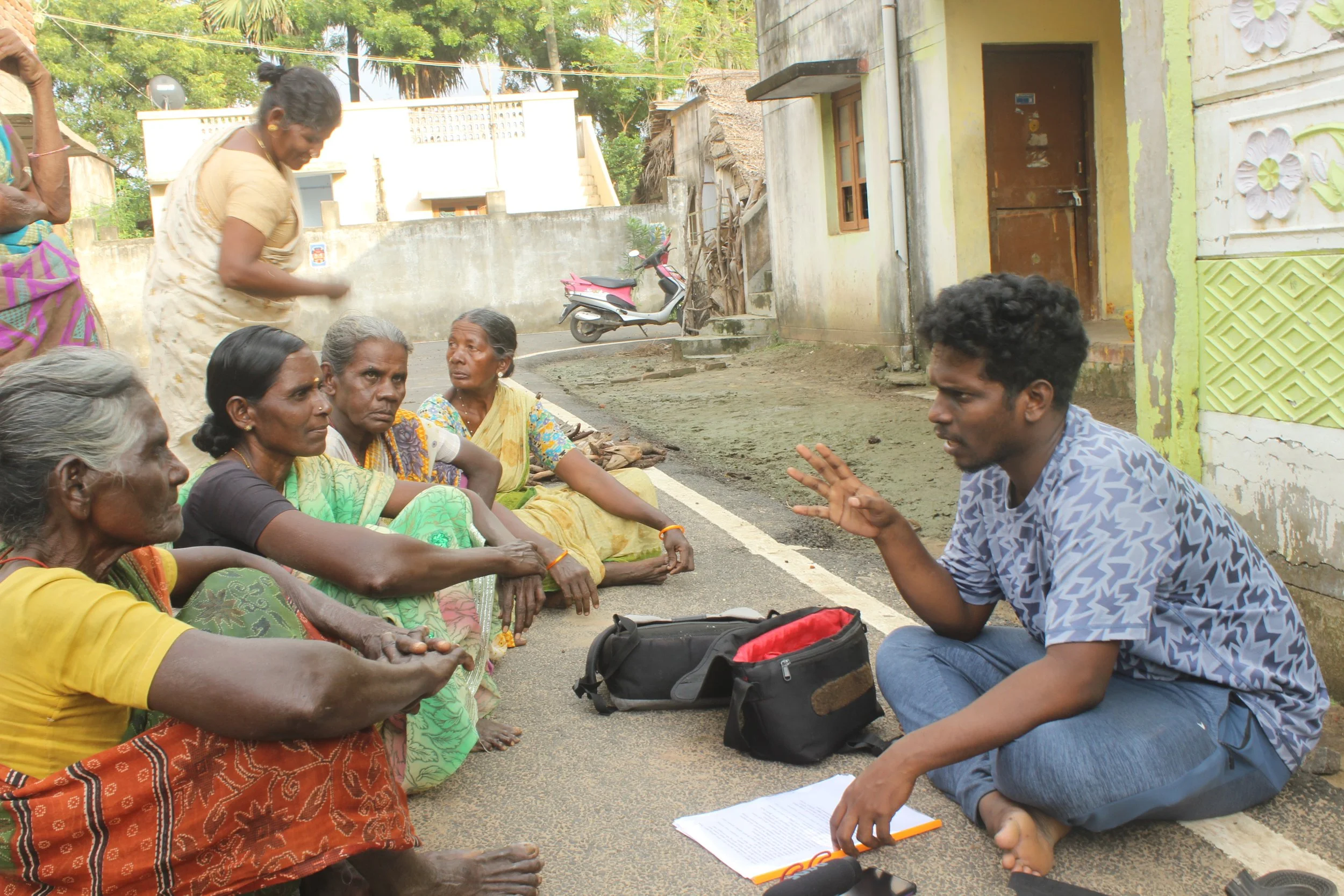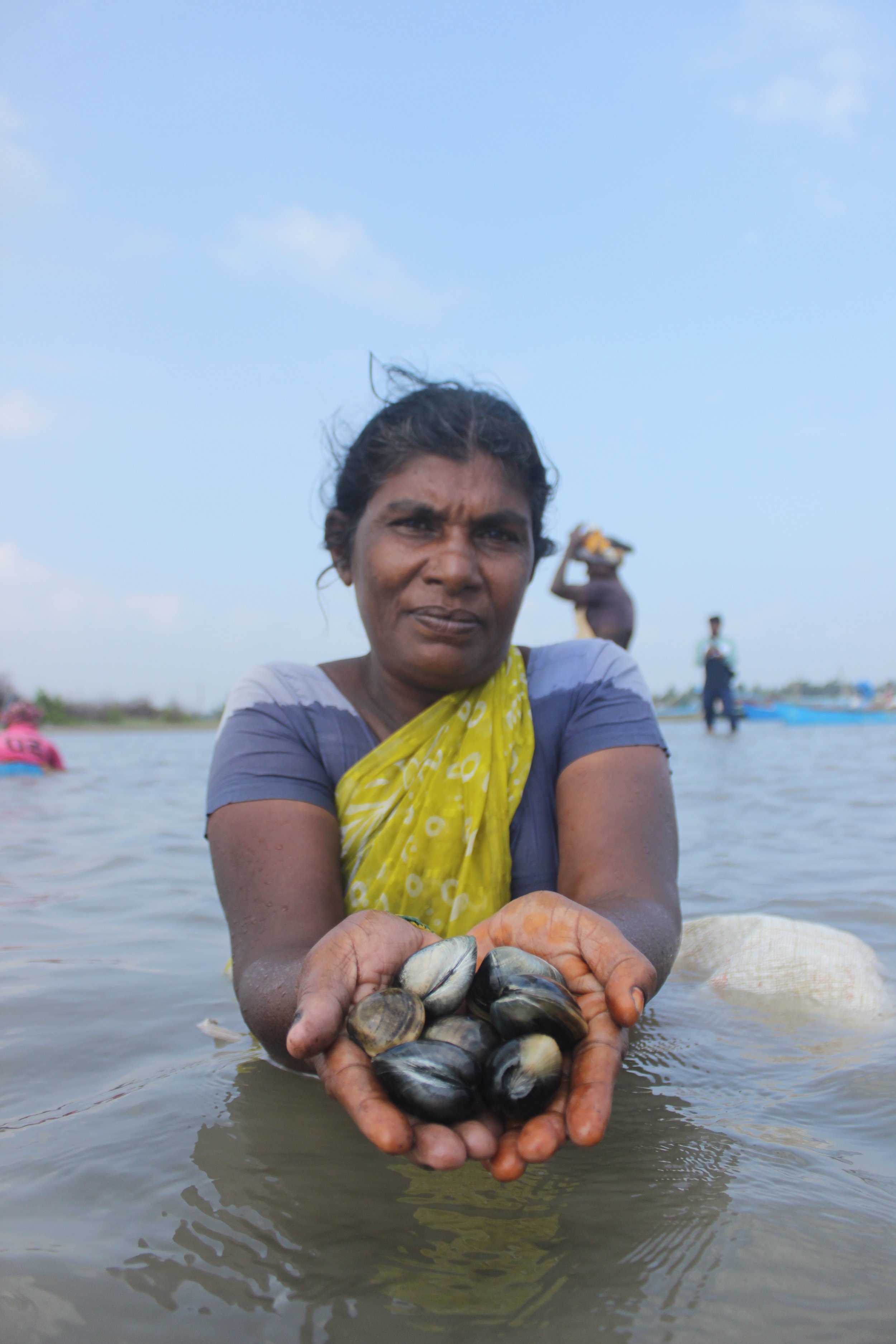Inlaks Shivdasani Fellow for Social Engagement: Pradeep Elangovan
Pradeep Elangovan is a Fellow currently in his first year pursuing the Inlaks Shivdasani Fellowship for Social Engagement. His work revolves around documenting the lives of coastal communities, particularly Dalit women in brackish water and estuarine ecosystems in Tamil Nadu through a series of publications.
We spoke with him to know more about his ongoing work, its challenges
and learnings, as well as his goals going forward.
The documentation of the ecosystems and communities you have chosen to undertake is important and interesting. Could you describe the milestones you have reached so far in your journey?
So far, I have completed documentation of two brackish water ecosystem areas namely Kallimedu and Muthupet. Kallimedu is an ecologically important area and a suitable place for mangrove forests to grow. The entire village depends on this area for sustenance. I have focused on the lives of over 100 Dalit women in the region, the socio-economic condition and status of the ecosystem, community rights in the ecosystem, and the relationship to caste. While documenting a Dalit fishers hamlet of around 200 families in Muthupet, I have chosen to focus on restrictions on traditional oyster collection, sustainable hunting methods, climate change impact and more. My objective has been to document the narratives of all the people in these areas comprehensively.
I am also working on publishing articles, and one of my pieces was published in a regional environment magazine called ‘Poovulagu’. Apart from this, I completed two major works to share and express the outcomes of fellowship activities. Based on the recommendation of my mentor, I participated as a key speaker at the ‘Youth and Climate’ conference in Chennai, where I spoke about climate change and coastal communities. I was also involved in community mapping in Punnaikayal Lagoon in Tuticorin District in the southern part of Tamil Nadu, where I supported the creation of a series of maps, like a public infrastructure map, a Fisher Commons map, a fish breeding site map, fishing limits in the sea, and a proposed long-term housing plan map.
What have been your key learnings so far?
I have done resource mapping and community mapping before. But now, I feel it is necessary for communities to claim their land and customary rights. Also, creating a map with the knowledge of community members creates the opportunity to relearn and unlearn a lot of things and learn new things, like marking potential breeding grounds.
Particularly, there is no record of fishing limits of Dalits and Tribals. Very few of the coastal wetlands have that. So, when I try to capture that, it will help me understand their knowledge about species behavior and unique practices. For example, in Kottaimedu, near Kollidam Estuary, the Irular tribe are using curved shaped iron rods to catch mud crabs. These curved rods help to protect from the biting of mud crabs. Also, earlier they caught fish in a huge area. But, now it has shrunk due to the coastal aquaculture. These are the learnings from the community mapping or resource mapping.
What have been some of the challenges you have faced on your journey so far?
Working in the Reserve Forest Boundary and taking photos with cameras is very difficult for me. Muthupet and Kallimedu, the field areas, are near forest boundaries. So, I am not able to take the photos and see the fishing activities. It’s kind of exhausting. It was a major difficulty for my documentation. As per the Forest acts, entering into the reserve forest area without permission of the forest department is illegal. But, if you go for the permission they never give permission to do photographical documentation with the communities. So,it was a huge struggle for my documentation.
What are you planning to work on in the near future?
I have a couple of projects planned for the next quarter. One is the documentation about tribal women in the backwaters of Killai, Cuddalore district, Tamil Nadu. The other is the documentation about tribal women in Kazhuveli brackish water lake in Villupuram district, Tamil Nadu. I was thinking of documenting their struggle to fish, their right to food and nutrition, traditional practices and ecological destruction in their ecosystem as well as producing a map to spatially mark their rights over the ecosystem.
To know more about the Fellowship, visit our website here.








